Hamilton, Joe Frank & Reynolds: Duo, Trio, Quartet or Law Firm?
by Jeff TamarkinThey scored two top 10 hits in the first half of the 1970s: “Don’t Pull Your Love,” which peaked at #4 in 1971, and “Fallin’ in Love,” which vaulted all the way to the top spot four years later. But who exactly were these Los Angeles-based soft-rockers known as Hamilton, Joe Frank & Reynolds, and what was up with that cumbersome, less-than-inspired name? Were they taking their cue from the very popular Crosby, Stills and Nash? Band names that sounded like law firms were suddenly in, it seems.
This story obviously requires a little unraveling. For starters, just how many people were in this group, and what was the deal with those names? If Hamilton and Reynolds went only by their surnames, why did Joe Frank get two? And if his name was indeed Joe Frank, why not just call the trio Hamilton, Frank & Reynolds to be consistent? Or perhaps Joe Frank actually indicated two people, Joe and Frank? If you were listening to the radio, you might think that Hamilton Joe Frank was one member and Reynolds the other, sort of a weird Simon and Garfunkel arrangement. Or was Hamilton, Joe Frank & Reynolds a punctuation-averse quartet that simply neglected to add a comma between Joe’s and Frank’s names?
No, they were a trio all right, and Joe Frank was just one guy. But unlike Hamilton and Reynolds, he didn’t go by his last name, which was Carollo. Someone must have decided that Hamilton, Carollo and Reynolds was just a little too formal, or weird.
Confused yet?
Perhaps we’d better start from the beginning, which has nothing to do with commas or jettisoned family names and everything to do with Alka-Seltzer.
Yes, that Alka-Seltzer, as in “Plop-plop-fizz-fizz, oh, what a relief it is.” If you’d been listening to the radio in late 1965/early ’66, or watched TV, you undoubtedly, at some point, heard a catchy guitar instrumental called “No Matter What Shape (Your Stomach’s In).” The hit record, released on the Liberty label, was credited to the T-Bones and found its way to #3 on the Billboard Hot 100.
Except there was no T-Bones, at least not when that track was cut. “No Matter What Shape,” its melody lifted directly from a popular TV commercial for the antacid that got all fizzy when plunked into a glass of water, was recorded by the prolific, behind-the-scenes studio session team known as the Wrecking Crew. The upset tummy anthem, along with several other tunes credited to the T-Bones, featured such now-highly regarded names as Hal Blaine (drums), Carol Kaye (electric bass guitar) and Tommy Tedesco (guitar).
Once “No Matter What Shape” began its ascent up the sales charts though, and demand grew for promotional appearances, a real T-Bones was needed. Liberty quickly assembled a “public” T-Bones to go out on the road and make television appearances. Among that quintet’s members: Dan Hamilton, Joe Frank Carollo and Tommy Reynolds. In 1966, that lineup (which also included rhythm guitarist Judd Hamilton and drummer Gene Pello, cut an album for Liberty titled Everyone’s Gone to the Moon (And Other Trips).
The T-Bones weren’t long for this world, but Hamilton, Carollo and Reynolds carried on, eventually regrouping under the moniker—two members’ last names and one fellow sticking to his first and middle—that would bring them true success. A full five years after the stomach song, the three ex-T-Bones resurfaced on the charts as a vocal-oriented soft-rock outfit with R&B influences. The song that became their vehicle for re-entry, “Don’t Pull Your Love,” had a history of its own.
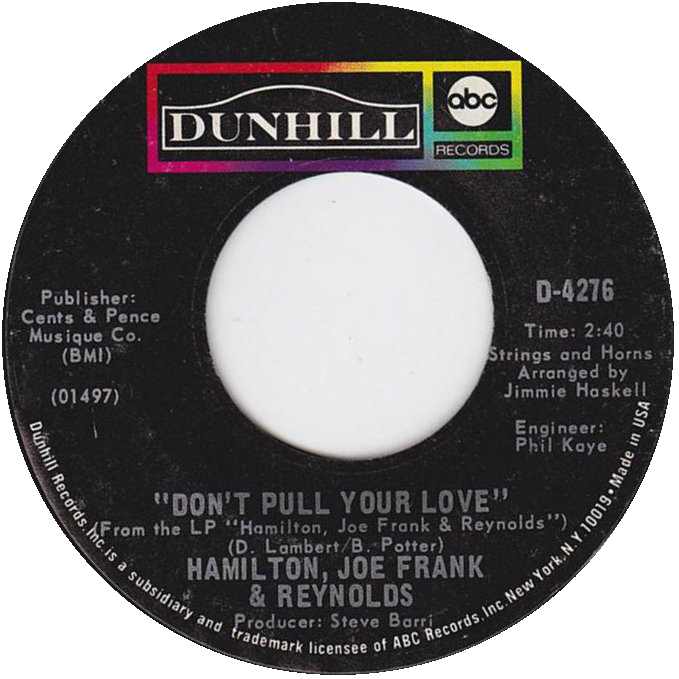 It had been written by Dennis Lambert and Brian Potter, two aspiring songwriters for whom chart hits would later become routine, but not quite yet. As early as 1965, Lambert and/or Potter had placed their compositions with a few well-known record-makers, although they’d missed the jackpot more often. They’d hoped to get Elvis Presley to record “Don’t Pull Your Love,” but he wasn’t interested. Neither were the Grass Roots, so Lambert and Potter produced a recording of the song in 1970 with a group called Country Store, which went nowhere fast.
It had been written by Dennis Lambert and Brian Potter, two aspiring songwriters for whom chart hits would later become routine, but not quite yet. As early as 1965, Lambert and/or Potter had placed their compositions with a few well-known record-makers, although they’d missed the jackpot more often. They’d hoped to get Elvis Presley to record “Don’t Pull Your Love,” but he wasn’t interested. Neither were the Grass Roots, so Lambert and Potter produced a recording of the song in 1970 with a group called Country Store, which went nowhere fast.
Writer/producer Steve Barri, who’d offered the song to the Grass Roots, then convinced the Hamilton, Joe Frank & Reynolds trio to give it a shot and got them signed to the Dunhill/ABC family of labels, where Barri was a staff writer (often in tandem with P.F. Sloan). Without changing the arrangement, the trio, with Dan Hamilton singing lead and horn and string arrangements by Jimmie Haskell giving the recording some oomph, cut their version in December 1970 and released it in April 1971, then sat back and smiled as it climbed the charts, reaching #4 that July and eventually going gold.
Its lyrics were based around a simple plea:
“Don’t pull your love out on me, baby/If you do then I think that maybe/I’ll just lay me down and cry for a hundred years,” it begins, with perhaps just a bit too much melodrama. “Don’t pull your love out on me, honey/Take my heart, my soul, my money/But don’t leave me drownin’ in my tears.”
The lead singer, with harmonies supplied by his cohorts, continues trying to reason (“Haven’t I been good to you?”), finally throwing his hands up in exasperation: “There’s so much I wanna do/I’ve got love enough for two/But I’ll never use it, girl, if I don’t have you,” they sing, and we never do find out if he wins her back or she pulls her love out for real.
Unlike the T-Bones’ recordings, Hamilton, Joe Frank and Reynolds played on the single and the self-titled album that accompanied it, but they had a bit of help, most notably keyboard contributions from the Wrecking Crew mainstay Larry Knechtel. The album (on which the hit was listed as “Don’t Pull Your Love Out,” arguably giving it a more lascivious bent) fizzled out at #59, and the trio’s next few singles also failed to make the top 40. Were Hamilton, Joe Frank & Reynolds about to be pulled out of the game, destined to know the same one-hit wonder status that the T-Bones had experienced?
Related: The year 1971 in rock music
Reynolds must have thought so, and he wasn’t waiting around to find out. In 1972, with the band’s status in limbo, he left the group, replaced by keyboardist Alan Dennison. Rather than further confuse their following, however, the newly reconstituted trio decided to hang on to the name Hamilton, Joe Frank & Reynolds, performing locally and hoping that lightning might strike again.
And it did, a long four years later. This time the prizewinner was a ballad written by group member Dan Hamilton, with a co-credit going to his wife Ann. In late 1974, Hamilton, Joe Frank & Reynolds landed a new record deal, this time with Playboy Records, an offshoot of the mega-successful Hugh Hefner-run publishing empire. “Fallin’ in Love,” released in May 1975, took 10 weeks to rise up the chart, finally replacing the Bee Gees’ “Jive Talkin’” at #1 in the August 23 edition of Billboard. For the second time, Hamilton, Joe Frank & Reynolds, who were actually Hamilton, Carollo and Dennison, enjoyed the fruits of a hit record.
 That success didn’t extend to the Fallin’ in Love album though, which stalled at #62, and there would be only one more mildly successful single, the #21 “Winners and Losers,” later in 1975, before the name of Hamilton, Joe Frank & Reynolds receded into the annals of pop music history.
That success didn’t extend to the Fallin’ in Love album though, which stalled at #62, and there would be only one more mildly successful single, the #21 “Winners and Losers,” later in 1975, before the name of Hamilton, Joe Frank & Reynolds receded into the annals of pop music history.
First though, Dennison finally received some credit for being a good sport. While the front cover of the Fallin’ in Love album attempted to persuade fans that Mr. Reynolds was still a participant, the back cover of that very same record gave a nod to truth in advertising: it read Hamilton, Joe Frank & Dennison. Subsequent recordings went with the latter as the group’s official title but by 1980 it was all over, with the three, as Reynolds had before them, going their separate ways.
Dan Hamilton passed away in December 1994, sadly just a year before his composition “Fallin’ in Love” was covered as a dance number by a German duo called La Bouche. Their version was a smash all over Europe and eventually reached the top 5 on the U.S. dance chart. As for “Don’t Pull Your Love,” it too was covered, by no less an artist than Glen Campbell, who cut it in 1976 and took it to #4 on the U.S. country chart and #1 on the easy listening survey. Campbell even performed the song as a duet with Cher on CBS’ Sonny & Cher Show.
Ironically, Campbell had once served as a session player with the Wrecking Crew and recorded with the pre-Hamilton, Joe Frank & Reynolds T-Bones. Others who covered “Don’t Pull Your Love” included R&B greats Sam & Dave and, better late than never, the Grass Roots, the very group that had once turned down the song, making it possible for H, JF & R to launch their career.
Apropos of nothing, one can only wonder what longtime ABC News personality Frank Reynolds must have thought about all of this.
Their hits are available here.

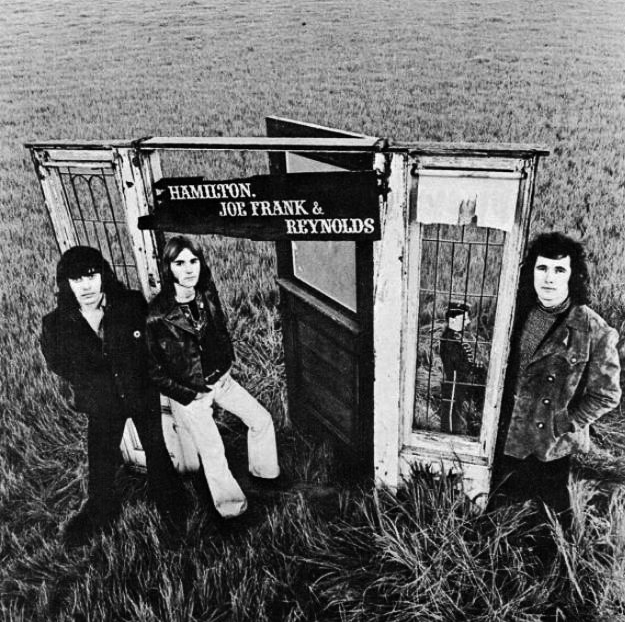
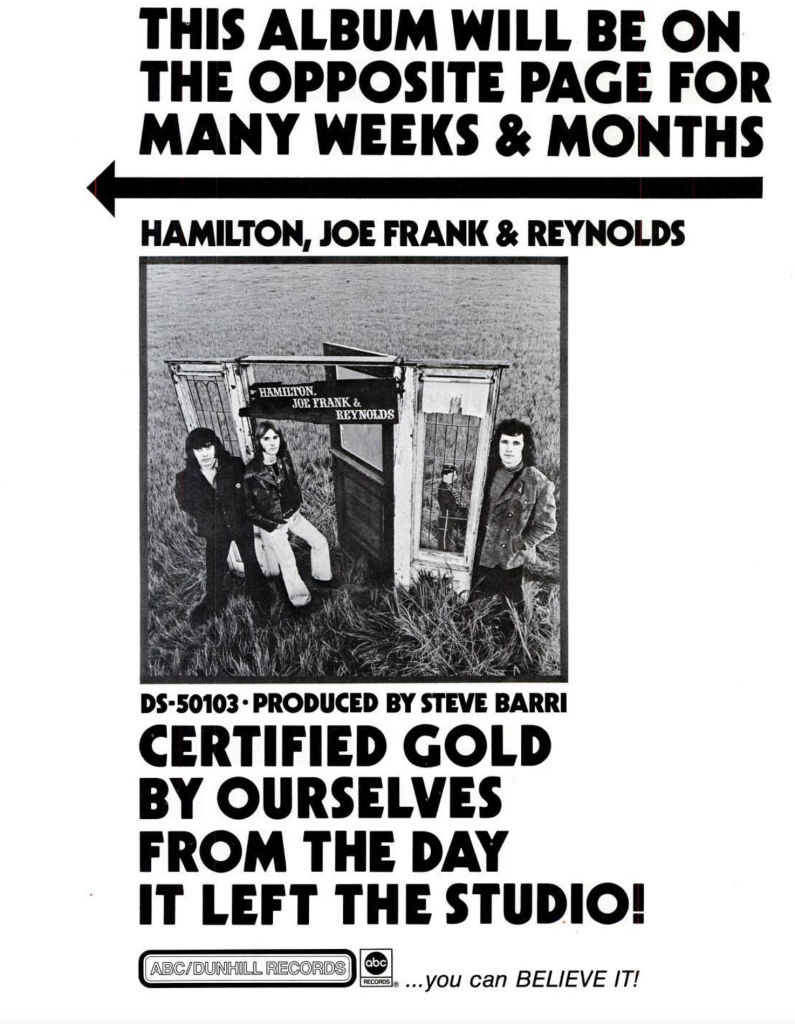


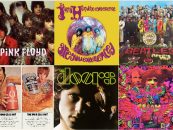
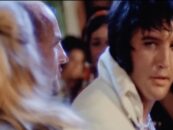


6 Comments so far
Jump into a conversationSome of us, when we hear or see the name Joe Frank, think of the late radio dramatist whose unique work is familiar to adventurous NPR listeners.
Always thought when I was a kid that “Don’t Pull Your Love” sounded like a Grass Roots song. And it almost was.
I saw the Grass Roots perform that song at a fair about 20 years ago.
I used to play in a cover band, and the guy who sang “Fallin’ In Love” would always say, “Fawwin’ In Wuv.” I laughed every time.
thank you, jeff, for clearing a mystery that i, for one didn’t think about!
Believe it or not, there is a Facebook group dedicated to Dan, Carollo, and Tommy…or Alan. Joe Frank is very active in it.